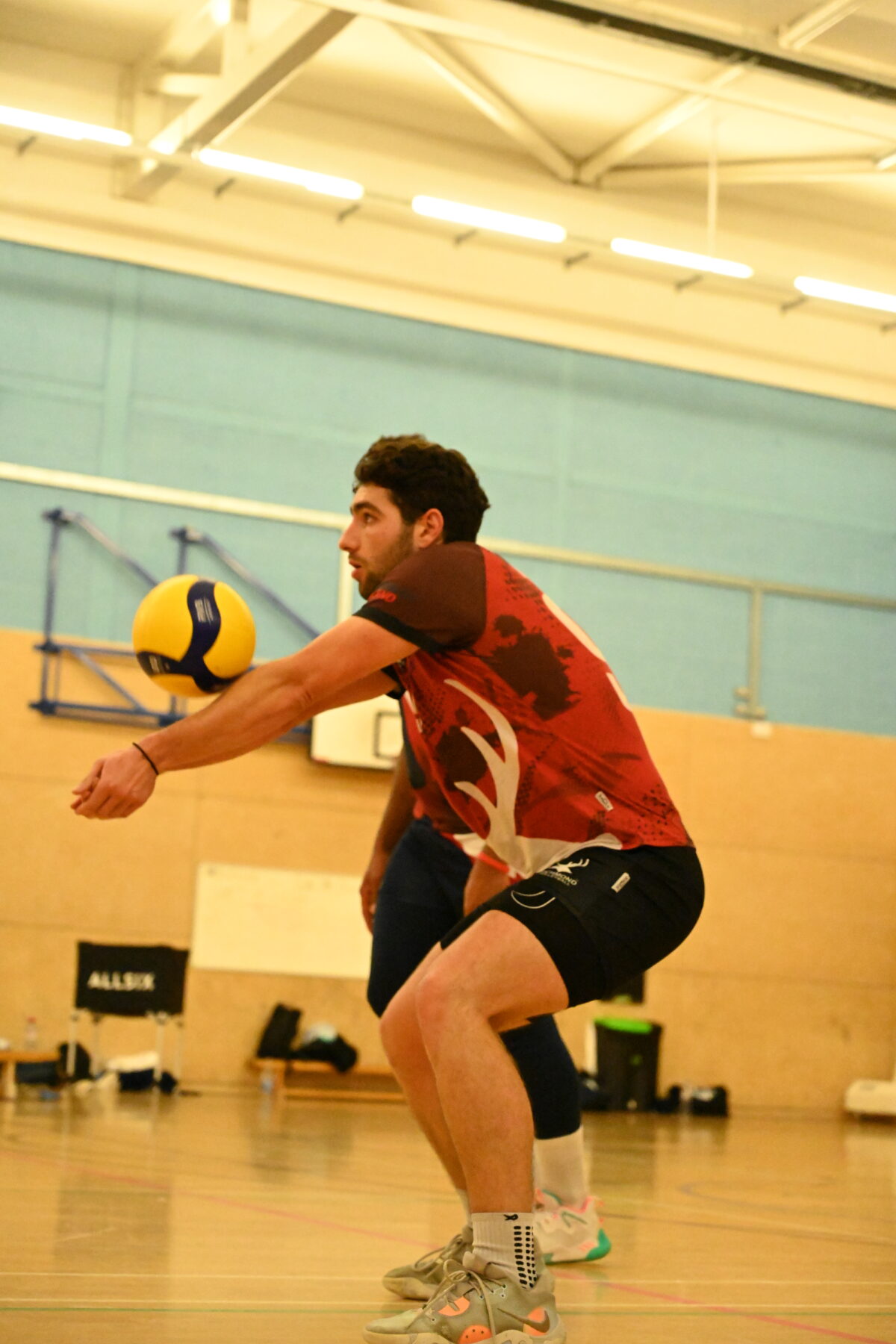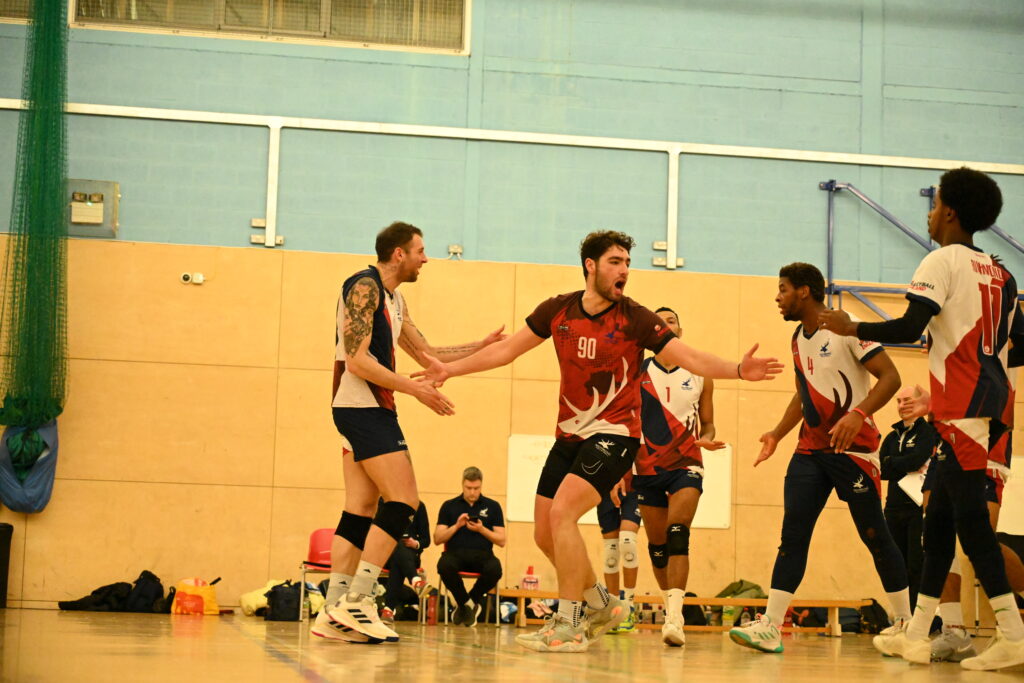Ivo Dobra – a Libero’s lot

Interview with Ivo Dobra, Richmond Docklands libero
Ivo, how did you start to play volleyball?
I was first playing football. From four years old, all the way up to 15. When you’re from a small school, obviously you have to play multiple sports. And then I just gave volleyball a go. And then my teacher said, oh, you know, you’re good, you should go and try out. There’s only one men’s team in my city (Karditsa, Greece), my dad knew a lot of people, so he knew the coaches. I tried and then for one year, I played both football and volleyball competitively, which was hard. And then I just chose volleyball.
What’s the main difference between volleyball in Greece and England?
In Greece, it was always a lot of people who came to watch, people who maybe weren’t interested in volleyball. It’s just going to see sports for entertainment. I hope volleyball in the UK evolves because it’s a really big sport and hopefully we’re going to see England in the European Championships and hopefully something like that happening in the future.
Do you know that your family name, Dobra, means good.
Yes, in any Eastern European language, I know.
How do you become libero, did you play it from the beginning?
Oh, no. My first position initially was middle because I was the tallest one in my squad. And then I worked, I played a lot of beach, so then my passing improved and then I got moved to outside. After some time my coach said that he wanted to promote me to play with the men’s team. He told me you’re good, but if you want to play at the highest level, you will play as a libero. I remember that conversation. There would always be a taller guy, a stronger and physically bigger than you. So if you want to play high level, you have to go as libero. Then I tried it, I liked it and then I stuck with it.
What do you love about being a libero and playing volleyball?
I always loved and play football. Libero is the goalkeeper of the team, he’s in similar positions because you don’t always touch the ball, and you’re not always involved in the play. I would more or less compare it with being someone in the midfield doing the dirty work. You always have to look after someone’s mistakes. You always have to look after someone’s play, and actions, and try to correct anything. You’re sort of guiding and directing the play without actually being involved in the play and it’s just something intriguing.
So you’re trying to read the game and predict the future?
No, not to predict the future, but you will see small gaps that exist in the opponents and for that split second that you have between plays, you can tell the attackers, I saw this. If you want to go after it, you can give them some. It’s not advice because you’re not in their position. You can’t make the decision for them, but you can give them some heads up, some pointers or something that you see that they might not see. It’s not exactly predicting the future, but it’s more of, you know, seeing things from the outside. It’s the same as a coach, but it’s on the court. Men’s volleyball is such a hard sport at the highest level because within 10 seconds after the serve, it’s finished super quick. You can’t defend everything.
What is the hardest thing about being libero?
Staying concentrated. You’re not involved in the play always, you can’t cover the whole court. So staying concentrated and in 25 points, like if they serve at your team 25 times if you touch the ball more than five times as a libero, then that’s good. Otherwise, it’s a good allocation of service. So it’s staying concentrated and always being ready to go and always your touch, always having to be perfect every time you go.

Tell us about Richmond, how did you get here and what do you think about the team this season?
I joined last January mid-season just after Christmas. I only came to the UK four years ago. So I didn’t even know volleyball existed in the UK, to be honest. But slowly some digging here and there and then I found a few teams and then I joined a couple of lower national division teams. I played there in NBL, division Two and then while playing volleyball I met some people. And then last summer they did the Summer Games, a good way of sort of recruiting people, providing high-quality volleyball games around London. I went there and then I met the coach Marcel and I started training here. Richmond is a big club, one of the biggest in England I would say in terms of people involved in playing. And Richmond Docklands men’s Super League team is part of it. So being a part of it is just nice. It’s always good to play for a big and historic club like Richmond.
Can you say something special about the Richmond team? What’s different compared to other clubs?
I haven’t been to many clubs, it’s just something that sticks to me. With Marcel and then with Andy, and then all of the people involved in Richmond is just a lot of expertise, a lot of experience in volleyball. So it’s good to get advice from people that have been in my shoes for a long time and I have played for my position a long time. It’s just good guidance coming from the top to the bottom, like mentoring.
We hope our interview will be read by some players from our junior teams. Could you give them advice on how to be a good volleyball player? How to be a good libero?
I can’t say about how to be a good libero because I’m still personally evolving. I don’t think I’ve reached my maximum potential as a player. But keep your head down, just work hard. Don’t get down when things go wrong. Stay calm and stay concentrated. Trust your coaches and trust people that you know have been in the game for a long time.
